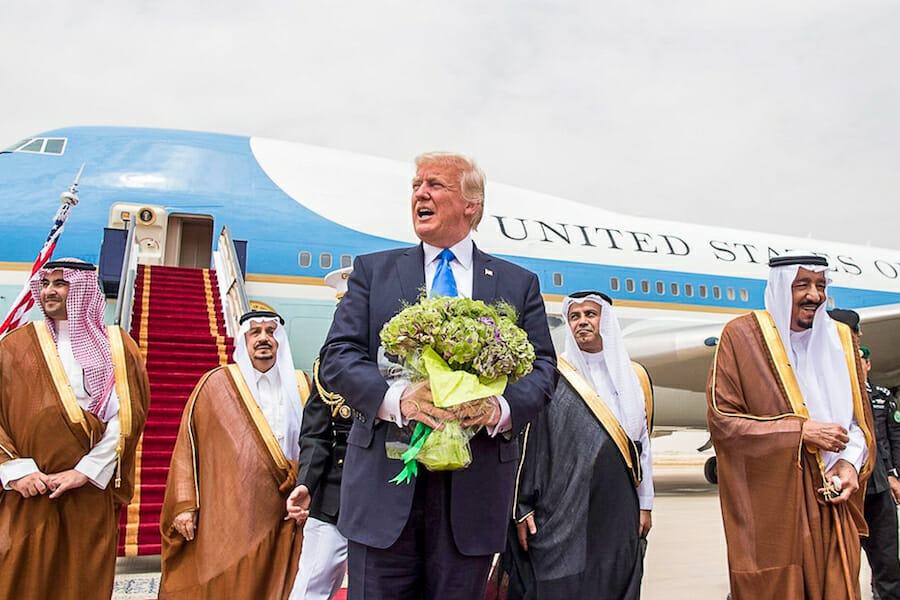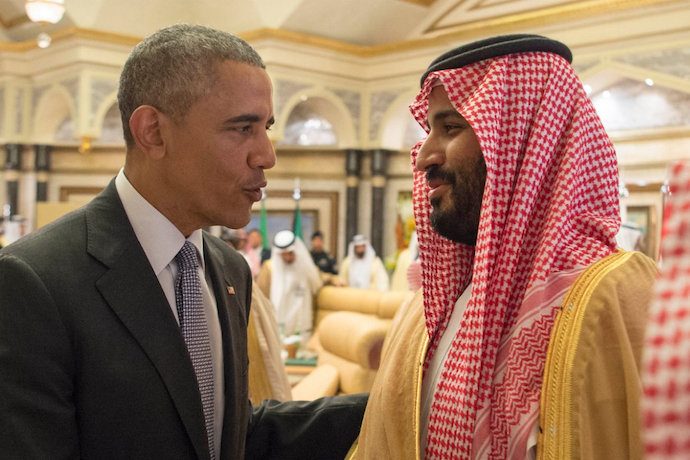
The Curtain has Closed on America’s Moment in the Middle East: But Who is Filling the Void?
For roughly the last ten years, leaders in Washington have been reluctant to shoulder the burden of being the dominant power in the Middle East. However, this decision to dial back or dial down on America’s involvement in the region is not based on any form of sound or concrete judgment, but rather is founded on American indecisiveness and inertia concerning its Middle Eastern policy. In this ill-defined moment, the Trump administration is unsure of what it wants and what is important to it, a stagnation which is causing the Middle East to experience a stage of reconfiguration. While questions concerning the conflict in Syria and the prospect of Palestinian-Israeli peace remain unanswered in Washington, new regional players have stepped into the arena and new alliances have been forged as a result of American absence.
This remaking of the Middle East is the shared legacy of Barack Obama and Donald Trump. The message expressed both during the Obama administration and the one we see currently has been the same: If America’s friends in the region desire geopolitical security, enhanced peace, and a new level of stability, they’d be better off attempting to solve these problems themselves rather than wait on their hands for Washington to provide it. Indeed, this pivot in American policy was made glaringly clear in 2013 by Obama’s decision to not enforce the supposed ‘red line’ against Syrian President Bashar al-Assad’s use of chemical weapons. This action began the process of Russia’s slow but sure encroaching influence in the Syrian conflict, with the decision leaving a gap which President Putin was quick to fill.
Despite hopes by many that Trump – as an outsider with few ties to the foreign policy establishment – would inject a newly enlightened and pragmatic approach to U.S. policy in the region in order to regain its hegemonic status, the rebalancing of power in favor of Russia started by Obama has since intensified. Trump ran for office riding on a declaration that he would take a more cautious and less-interventionist stance toward the Middle East, adopt a more even-handed and reasonable approach to the issue of Israel and Palestine, and would avoid being clamped down in endless wars. However, upon taking the presidency the implementation of these campaign objectives – beyond the fight against ISIS – has been muddled and confusing: he has remained indecisive on American action in the Syrian conflict through his continued air missile strikes on the country, upsetting the equilibrium concerning a Palestinian-Israeli peace agreement, and threatened war with Iran.
The conflict in Syria is the clearest example of a post-American regional order in the Middle East. The disorganization of Washington’s Syria policy is symptomatic of its failure to define a fresh role in the world political system, as evinced by its military operation against Assad in April 2018. Despite the intended message the U.S. and its allies in Paris and London wanted to send to the Syrian regime, the operation accomplished little and further revealed to world leaders that Trump has no Syrian strategy. As such, due to this inability to decide on what part to play, others have begun to fill the vacuum. The leadership in Moscow and Tehran have capitalized on this inaction, seeing their extension of power in Syria as not primarily about solving the ongoing war but instead to weaken Western authority in the region. Indeed, Syria is a place where all American interests are engaged and at risk.

This kind of power pivot is not unique in the Syrian context, however. By targeting the Iranian regime and taking a hard stance against Turkey, the Trump administration has inadvertently built a powerful alliance among Russia, Turkey and Iran: an axis whose anti-American interests are to the detriment of U.S. primacy in the Middle East. Indeed, this alliance is not natural, rather being the direct result of Trumps botched and heavy-handed diplomacy. Since the days where Tsarist Russia struggled against the Ottoman and Persian Empires, Russia has had a conflicted geopolitical relationship with both Turkey and Iran; Turkey’s admission into NATO hardly benefited the relationship between Moscow and Ankara either. However, as tensions continue to grow between the White House and Turkey – centered around American pastor Andrew Brunson’s house arrest in October 2016 and the subsequent imposition of U.S. sanctions – some analysts have put the option on the table that Turkey may wish to abandon the NATO alliance itself rather than compromise with the U.S., and instead seek alternative deals with Russia by moving closer into its sphere of influence. All of this has coincided with Trump’s unilateral decision to withdraw from the 2015 Iran nuclear deal, reintroduce sanctions on Iran, and impose more sanctions on Russia. This type of diplomacy is doomed to negatively affect the U.S. concerning its Middle Eastern policy in the future, having driven together a potentially potent coalition whose goals for the region do not match those of Washington.
Arab enthusiasm to partner with Trump concerning his ‘Deal of the Century’ for Palestinian-Israeli peace also clearly seems to be faltering: another arena in which American influence is on the decline. After months of shuttle diplomacy and a series of meetings with Arab leaders, U.S. envoys Jared Kushner and Jason Greenblatt have failed to convince Egypt or other key Arab states such as Saudi Arabia or the United Arab Emirates that the U.S. can broker a fair deal. While the head of the Egyptian parliament’s Arab Affairs Committee has claimed that Egypt believes that Trump’s claims of ongoing support for the peace process are “entirely false,” he also staunchly suggested that “Most of the Arab world – including Egypt and Saudi Arabia – have rejected the U.S.-proposed Deal of the Century.”
Indeed, the U.S.-led peace process has always been incredibly biased in favor of the Israeli occupation; too much so that an equitable settlement was impossible. But there was at the very least some degree to which America could claim to be an honest negotiator before the superpower moved their embassy from Tel Aviv to the multi-ethnic city of Jerusalem, making it the only country in the world to recognize the city as the Israeli capital. The U.S. effort this summer to shut down the UNRWA – a refugee agency providing assistance and aid to Palestinians in Jordan, Gaza and the West Bank – has only added fuel to this fire. The result of this has been disappointment for Arabs who fondly remember the May 2017 photo-shoot at the Riyadh anti-terrorism summit.
If the dream of Pax Americana for the Middle East is dead, it is only a consequence of America butchering it. Many moderate Arab states would welcome a more engaged and active U.S. policy toward the region, but are otherwise looking elsewhere for support. This American retreat has been effectively compounded by the counterhegemonic actions of countries such as Russia, Turkey, and Iran, who have begun to seep into the gaps left by American inaction. Trump’s call to “let the other people take care of it now” has been well and truly met; but perhaps not by those he had wished to pick up the mantle.
America’s best course of action would to turn up the dial on its activity in the Middle East, otherwise it will have even bigger problems to face there in the future.
